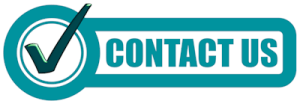Zero-Zero Program
The legislated enrollment period is from November 15th – December 15th ... learn more below Contact Us Save / Print Info
The Affordable Care Act has a requirement that all insurance carriers (offering fully insured plans) to accept any valid REGULATED (1) employer submissions WITHOUT ANY REQUIREMENT FOR EMPLOYEE PARTICIPATION OR EMPLOYER CONTRIBUTION (2).
The legislated enrollment period is from November 15th – December 15th, (but Blue Cross is opening it up on November 1st) every year and is only for an effective date of January 1st. Blue Cross is accepting paperwork dated 11/1/17 – 12/15/17 for 1/1/18 effective dates. All submissions must be fully completed with binder check, and released by our office to BCBSIL by 12/15/17.
(1) All groups are underwritten for “business structure”. Businesses must be of “qualifying structure” in terms of filing status, total number employees etc. Underwriting guidelines vary by carrier. Call to qualify your business structure. See below for valid group definition, for your reference.
(2) Employers with 1-50 total employees (FT, PT, and Seasonal, Union) during more than 50% of the prior calendar year. Owners of any company are not considered employees.
Why would an EMPLOYER want to bother getting into the health insurance space, if they are not presently offering benefits?
• Group plans have more plan options to choose from than individual offerings.
• With the Zero Percentage Employer Contribution, an employer can offer a plan that may not jeopardize an employee enrolled through “The Marketplace” and receiving a Premium Tax Credit! (so long as coverage
costs more than 9.5% of the employee’s income, it is not considered affordable, and therefore doesn’t jeopardize subsidies)
• With Zero Participation requirements, you can have a valid group with only ONE participating employee!1 For valid business structures
• Gain access to the broader network and the pretax savings on health insurance premiums! So long as there is a section 125 plan in place
• Save FICA (7.65%) on every enrolled employee—given the annual cost of health insurance today, which is not an insignificant number!
• Offer a benefit that is highly valued by their employees (network, pretax) that they cannot procure without an employer sponsoring the plan. With a section 125 plan
• The employer can do this at no cost to them (0% contribution), and in fact, SAVE MONEY (FICA savings) simply by doing the payroll deductions monthly
• An opportunity to offer a benefit to attract and retain key employees, at no cost to the employer
Small Group Qualifications
A valid group is a group that meets one of the following criteria:
1. They are a partnership where the owners file a 1065 K1 OR
2. They are not a partnership where the business owner(s) file any kind of tax document besides a 1065 K1, but they averaged at least one common-law employee in the prior calendar year
a. A common-law employee is a payroll employee that is not the business owner or the business owner’s spouse
b. The prior calendar year for 2018 effective dates is 1/1/17 – 12/31/17
In scenario 1, we do not need to have any common-law employees. All owners may enroll or waive, and if they have any common-law employees, they can also enroll or waive coverage.
In scenario 2, we do need the average of one common-law employee in the prior calendar year in order to be considered a valid group. So long as the group meets the average of one in the prior calendar year, then one or more people in the group (owner OR employee) may enroll or waive coverage.
The word “average” in scenario 2 is important. Last year, groups were able to put one employee on payroll in December in order to be considered a valid group for January. Since Blue Cross added the word average into the definition for 2/1/17 effective dates forward, non-partnership groups who want a 1/1/18 effective date now need to hire 12 people in December 2017 in order to meet the requirement for averaging one common-law employee in the prior calendar year.



